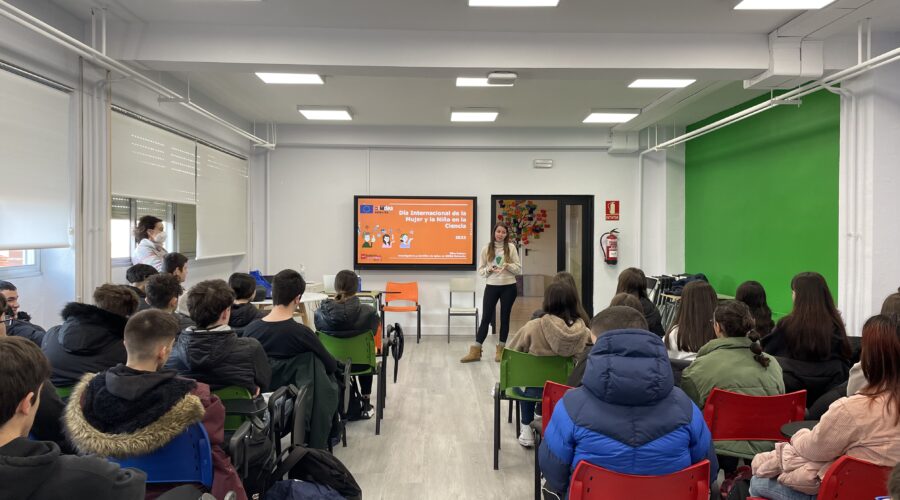IMDEA Networks

IMDEA Networks organizes the educational talk 'Inspiring Women Scientists' for the Day of Women and Girls in Science
The activity took place at IES José de Churriguera in Leganés
10 February 2023

At IMDEA Networks, we continue working to promote female talent and foster STEM vocations. This Friday, February 10th, we have been at IES José de Churriguera in Leganés on the occasion of the International Day of Women and Girls in Science. ‘Inspiring Women Scientists’ has been an educational talk complementary to the round table held on February 8 with the aim of inspiring new generations to build a more equitable society. Both activities have been carried out in the framework of the Researchers at Schools initiative, funded by the European Union within the Horizon Europe Program and as part of the Marie Skłodowska-Curie actions.
Throughout the morning, our Postdoc researcher Elisa Cabana has approached science and technology to more than 100 students of 3rd and 4th ESO, explaining concepts such as artificial intelligence, data science, and big data. She also talked about her professional career and how she got into the world of research, while highlighting the work of important women scientists in history and in the present. He mentioned the role of Ada Lovelace as the first computer programmer, Marie Curie (Nobel Prize in Physics), Margarita Salas (a pioneer in the field of biochemistry and molecular biology in Spain), and Margaret Hamilton (in charge of designing the software for the Apollo 11 mission).
She has also referred to Sara García (selected by the European Space Agency as a reserve, becoming the first Spanish woman astronaut candidate), Rocío García (the engineer at the head of the team developing the cutting-edge space technology of the ‘European GPS’), Katie Bouman (led the development of an algorithm for imaging black holes) and Sarah Gilbert (the researcher who discovered AstraZeneca’s vaccine for COVID19).
In addition, Elisa told them about some of the projects she is working on to improve society, such as a sign language translator that uses neural networks or projects to combat COVID. At the same time, she emphasized the importance of assisting and promoting initiatives in which women are the protagonists, such as WomenTechMakers.
As Elisa herself has explained, “activities to disseminate science are very important to motivate young people, teaching them the real applications that technology, science, and engineering have in our world. In the case of girls, it is especially relevant as there are fewer female scientists, and this helps to increase visibility and raise awareness of the important contribution of women in this field. This helps to break gender stereotypes, which still exist, such as the belief that engineering careers are made for men and not for women, when this is not really the case, because science and technology know no gender, and we are all equally capable as long as there is effort and motivation.”
Finally, the group of students participated in a contest to see how much they knew about the scientists and the content they had seen. The winners received a prize from IMDEA Networks.


Recent Comments